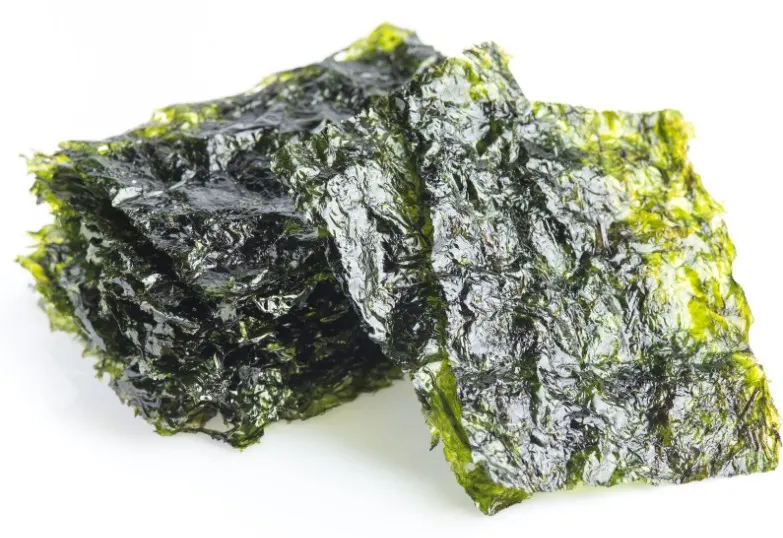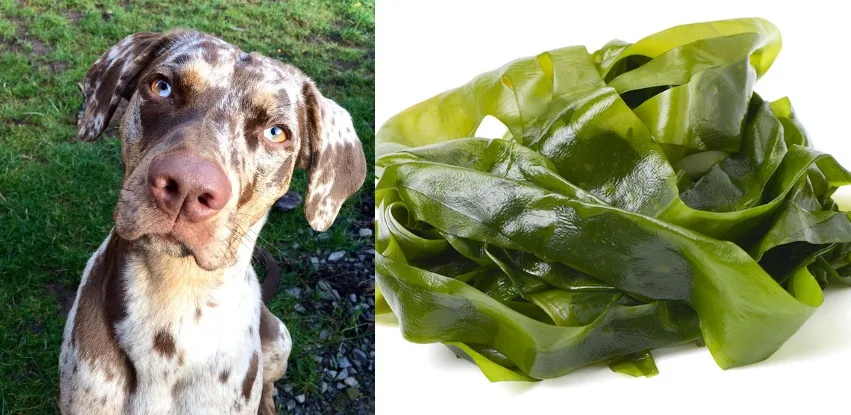In the last couple of years, seaweed has become very popular. And for good reason! It has many nutrients important for our bodies. But what about our canine companions? Can dogs eat seaweed? Does it have the same health benefits on them as it has on us, humans?
Many studies have shown that seaweed is beneficial for dogs, but there are some things you need to pay attention to.
In this article, you’ll learn more about seaweed and how safe and beneficial it is for dogs.
Can dogs eat seaweed – What to know
We’ll give you an overall answer to the question can dogs eat seaweed. Basically, dogs can eat seaweed. But, it’s always better to check with your vet. Ask them if seaweed would be a good option for your dog.
They know your pooch best and will give you the most accurate answer. Besides this, the first time you give your dog seaweed give them just a little bit, and monitor their reaction. See how they behave, are they showing any unusual behavior. Do they seem sick, how is their mood, and so on?
Benefits
Seaweed, like kelp and nori, is a good option for dogs because it has no cellulose. Dogs have a very hard time digesting cellulose, which can lead to GI problems.
Besides this, seaweed is a great source of protein, minerals, and vitamins. It also contains magnesium, iodine, and Omega-3 fatty acids which keep your dog’s coat shiny and skin healthy.
Seaweed also contains phosphorus, choline, and vitamins A, B, C, and E. It can boost your dog’s immune system and overall health. It will also give your dog an energy boost and keep them active during the day. Seaweed contains vitamin B-12 too, which promotes your dog’s cognitive function.
Dried seaweed is the best option because it is richer in nutrients. Which makes feeding your dog seaweed easy. You can just sprinkle some dried seaweed on your dog’s food. Seaweed snacks can be an option too if they don’t contain any seasoning, especially onion and garlic powder.
Dangers
Just like with any other human food there are dangers to seaweed too. Obviously, there is a huge difference between the wild seaweed you find on the beach, and kelp and nori seaweed which are considered safe for canines to eat. If your dog starts liking seaweed there is a big chance they will try and eat the seaweed they find on the beach. For example, while you’re on a trip or walk. So it’s very important to know that you should not let your dog eat that seaweed. If necessary keep them on a leash.
The problem with wild seaweed is that it dries up in the sun. When your dog eats it absorbs water from your pup’s body and expands. This can create a blockage that can be fatal for your dog. Now, we say it can, doesn’t mean it will. But, it’s not worth taking the risk.
Besides this, the wild seaweed you find on the beach is filled with pollutants and bugs, and maybe some other dog even peed on it. You don’t know what could be on that seaweed. So obviously, all of that could harm your dog.
Lastly, wild seaweed usually contains more salt. When you take a piece of seaweed and look at it closely you’ll literally see salt stuck on it. Too much salt is very harmful to dogs, it can actually lead to salt poisoning.
Dogs can’t eat a lot of salt. A dog that weighs 33 pounds, should only consume around 100 milligrams of sodium a day. There are many symptoms of salt poisoning you should be on the lookout if your dog ate too much salt:
- doesn’t want to eat
- drinks a lot of water
- vomiting
- diarrhea
- your dog seems weak
- high temperature
- coma
Moderation is key
We can’t stress it enough, no matter which human food you give your dog (safe foods!) moderation is key! Even if you’re giving your dog the healthiest human foods like fruits or vegetables, they still shouldn’t eat too much of it. Your dog’s digestive system is not the same as yours. So, even too much of a good thing, in this case, healthy food, can be bad and can harm them.
The same goes for seaweed. For example, seaweed supplements are a great option, they are healthy and beneficial. But, for example, kelp supplements contain a bit of arsenic which can be poisonous if consumed in large amounts.

Secondly, dried seaweed paper, or nori, can contain mercury and other heavy metals which can be toxic for your dog.
This is why we said that, even though dogs can eat seaweed, you should still consult your vet about if your dog should have it. Every dog is different, so there is no one answer that fits all canines. And there is no food that will be good for all dogs.
Conclusion
To conclude, can dogs eat seaweed? Yes, they can. But it shouldn’t be wild seaweed from the beach. That kind of seaweed is not safe. You can feed your dog seaweed like nori or kelp, which has many health benefits for your pooch.
But, always remember, before you introduce any new food into your dog’s diet talk to your vet. Let them know what your plan is, and ask them if they agree. Even though seaweed is safe for most dogs, there are dogs that can be allergic to it. So it’s important to make sure your dog can really eat it.
When feeding any human food to your dog for the first you should let them eat only small amounts and see how they react. If your dog is showing any unusual symptoms or behavior, call your vet immediately and let them know what is going on.
You can also learn more bout other human foods and if they are safe for dogs:

